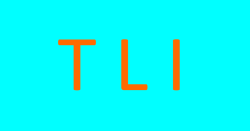A religious government is one who promotes religion. An irreligious government is one that denounces religion but may believe in a supreme being but not its involvement in government; people who promote such a government are called deist.
A theocracy is a government in which a nation is governed by what God says as interpreted and set forth by set apart religious leaders who represent God. These religious leaders rule in a way that the people have some (1 Samuel 8:1-22) but minimal voice as to laws, etc. People do not vote but may learn the mind or decision of God through casting of lots (Leviticus 16:8). These religious leaders oversee moral laws, civil laws, and ceremonial laws.
Autocracy is a form of government in which one person has absolute power such as in a dictatorship. Democracy is the opposite of autocracy.
A democracy is a form of government in which the citizens have the equal power to cast their own vote with regards to an action and to elect representatives to cast a vote or otherwise act on behalf of those represented with respect to some matters.
A democracy can be of two fundamental forms:
Form 1 is one in which the majority rules simply by numbers such that there are no constraints on the majority. In this form, the majority rules on a given issue/vote and theoretically can unfairly and unreasonably trample the rights of the minority.
Form 2 is one in which the majority rules within certain preestablished constraints such as an existing Constitution and/or existing laws. In this form, a Constitution and associated laws are intended to protect certain inalienable and other rights so the majority do not oppress the minority.
Of course, words have different meanings depending on context and who is using the word. For example, the official name of the Soviet Union is Union of Soviet Socialist Republics. So certainly, the Soviet Union does not incorporate democracy in its idea of a republic.
The USA government is of Form 2. The USA is sometimes called a democracy, sometimes a representative democracy, sometimes a constitutional democracy, sometimes a republic, sometimes a democratic republic, sometimes a constitutional democratic republic, and sometimes a representative republic. All of these terms are equally valid because it is generally accepted that they refer to the core USA idea of a government of the people, by the people, and for the people yet constrained by the pre-established never changing or hard to change rules provided by our Constitution and associated laws at Federal and State/Local levels. So then republic and democracy are not mutually exclusive. Indeed, the opposite of republic is monarchy not democracy.
An atheistic government is an irreligious government that denounces the very existence of God.
A secular government is one that is neither religious nor irreligious. It is neutral toward religion. It does not favor religion nor is it hostile toward religion. A secular government is not atheistic since its neutrality means it does not deny the existence of God.
The American Federal Constitution promotes a secular government. This is seen in the absence of any reference to God in the Constitution itself. It is further seen in Amendment 1 and no religious test provision of Article VI. Yet, it does not promote nor does it denounce God.
In a theocratic form of government, the leadership is appointed by God and/or God’s prophet.
In a democratic form of government, the leadership is elected by the common people; those elected by the common people may further elect or appoint other leaders.
In a theocratic form of government, the people may still have a voice. For example, the Old Testament Israel is considered to have been a theocracy. Yet, the people still had a voice. Indeed, it was the people of Israel who wanted a King to rule over them like the other nations around them had a King (1 Samuel 8:1-22). This asking for a king Moses spoke about in Deuteronomy 17:14-20. So God hearkened unto their voice and gave them King Saul. Yet, he let them know that it was not his preferred way. His preferred way was for him, God, to be their King (1 Samuel 12:12). Samuel explained the manner of the kingdom to the people and wrote it in a book (1 Samuel 10:17-25). Other scriptures regarding this making of a King include 1 Samuel 11:15; 1 Samuel 12:1-12; 1 Samuel 12:9-17; 1 Samuel 12:24-25.
In a theocratic form of government laws are generally made only when they are consistent with God’s will; the people have severely restricted liberty to make laws that go against God’s will. However, as in the case of the King as discussed above, God may allow people to make a law that is not for their good if that is what they want to do.
In a democratic form of government laws are generally permitted to be made even if such laws are inconsistent with God’s will; the people have the liberty to disregard God’s will as a matter of regularity. Yet, the people also have the liberty to regard and respect God’s will and therefore make choices consistent with God’s will.
For a comparison of democracy and republic click here
For a comparison of democracy and communism click here
For a comparison of socialism and communism click here
For a comparison of socialism and capitalism click here
For a relatively detailed discussion of democracy click here
For a relatively detailed discussion of republic click here
For a relatively detailed discussion of capitalism click here
For a relatively detailed discussion of communism click here
For a relatively detailed discussion of socialism click here
For an article entitled Republic vs. Democracy: What Is the Difference? click here
To God Be the Glory!



